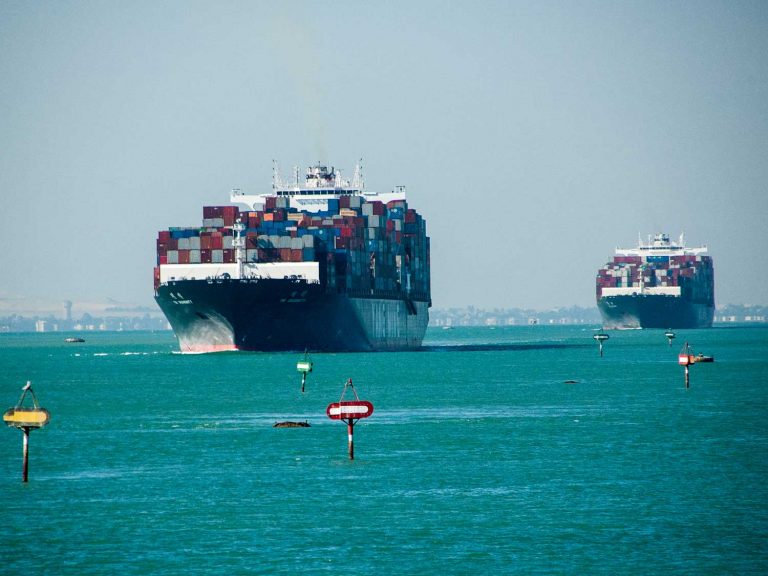
Date:
Maintaining time-critical supply chains post-Suez Canal blockage
There has been only one story in town for the last week! Even though the Ever Given has been re-floated and the Suez Canal is working to clear the backlog of waiting vessels, a huge amount of uncertainty remains and we should still expect a shortage of containers at many origins, vessel diversions and vessel schedule chaos, as well as congestion and disruption as goods are unloaded at arrival ports, with even scarcer haulage resources to finalise deliveries.
You need to make contingency plans now. We are already clearly seeing the aftermath and consequences unwind within the global logistics arena.
Shippers should expect disruption to continue for some time and with many already dealing with reduced volumes, it is necessary to think about contingency options, to keep your supply chains running.
We are receiving a surge in enquiries for ‘distressed ocean freight’ shipments, which have been delayed from their original schedules. Metro has a variety of solutions for time-sensitive consignments, including air freight, sea/air and rail transport which will become increasingly popular, as fallout from the Suez incident continues to be felt.
Europe/Asia rail services have been overbooked eastbound and westbound, which means it’s difficult to find space and severe delays are common, making it a less attractive option presently as a realistic alternative solution for UK origin or destined freight movements.
We would expect air to take the brunt of this increased demand, but volume is massively constrained by the lack of passenger (PAX) belly-hold capacity and the priority movement of Covid test kits, electronic commodity launches and pent-up retail demand driven by retail stores exiting lockdowns and when combined this is turning available air cargo space into a ‘bidding war’.
Working collaboratively with key partner airlines Metro has been able to protect air volumes on all major trade lanes, to keep our customers’ most urgent supply chains operating and routing cargo via our Birmingham Airport hub, Heathrow and other gateway airports means we can ensure efficient and rapid ground handling on departure/arrival.
Metro’s sea/air services from Asia via Singapore, Dubai and Colombo have been reliable and resilient through the Pandemic, providing a rapid and cost effective alternative to pure airfreight. Proving to be particularly effective during the height of the Covid pandemic when we expedited hundreds of millions of PPE units through our dedicated Singapore hub, in conjunction with our expert partners at a local level.
It is relatively low cost, in comparison to any direct air freight alternative and is a primary driver for the popularity of sea/air services, but so too are the myriad of route and transit options available to suit most deadlines.
Sea freight will struggle with the impact of the Suez blockage for months to come, so a wait and see strategy is unlikely to work. We recommend that you review your priority shipments and products and we can assist in making the right decision to ensure business continuity and your own customers’ demands are achieved.
When ships get delayed by an incident, they go off schedule and arrive too close together, creating chaos. Which will occur in the wake of this Suez blockage, first at European ports, then at US East Coast ports, as well as throughout Asia.
There will be a short lull before ships start arriving, to clear backlogs, but even if the ports succeed, ULCVs typically have a container exchange of up to 10,000 TEU, which stretches terminal productivity to the limit at the best of times.
We are likely to see a lot of port omissions by vessels and congestion at major ports. We are now being advised by shipping lines of some significant service cancellations that will create weeks where vessels are not operating as they look to realign their schedules – the impact is already being felt within the industry as we enter April.
As congestion spreads carriers will unload vessels at a single early port in order to get ships back to Asia quicker, which means that cargoes destined for multiple European ports will have to move to the correct destination by feeder or other means.
Another extension of the pain is likely to be the actions that the lines will take to recover their schedules, which is likely to include blanking sailings, omitting port calls or deploying “extra loaders” (though this latter is less likely given the state of the charter market.)
With ships out of position and far behind schedule, port congestion spreading and continuing container imbalances, all the ingredients are there for further rises in rates and carriers may feel entitled to extend surcharges for another few months or even increase them to the general market who are not under contracted commitments.
We would be delighted to discuss your specific requirements for time critical shipments caused through the Suez Canal closure or general requirements.
For further information on our Air Freight & Sea-Air services and solutions please contact Grant Liddell or Elliot Carlile for immediate assistance.
We will continue to monitor the situation and keep you updated on a daily basis down to consignment booking level through the air freight team contact.
We have a portfolio of services and options to deliver speed of transit versus cost – please talk with us and we can recommend the best fit solution to ensure that your supply chains continue to function and thrive.
